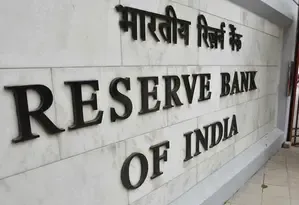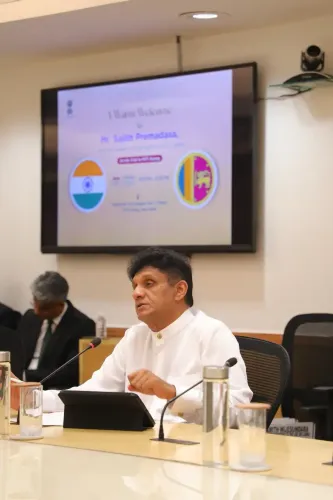Anticipation Grows for Further RBI Rate Cuts as Monetary Stance Shifts to Accommodative

Synopsis
Key Takeaways
- RBI decreases repo rate to 6.25%
- 75 basis points of cuts expected in 2023
- Change in monetary stance to accommodative likely
- New forward contracts introduced for government securities
- Improved access to NDSOM for non-bank brokers
New Delhi, Feb 9 (NationPress) As the RBI begins its cycle of rate reductions, expectations are rising for additional cuts, although the timing remains a topic of discussion, as indicated by a report from Bank of Baroda.
The RBI MPC has unanimously decreased the repo rate by 25 basis points, from 6.5% to 6.25%. The monetary stance was maintained at neutral, providing the MPC with flexibility for future policy decisions.
“We are forecasting a total of 75 basis points in cuts for this calendar year. The April policy meeting will assess the economic landscape, and based on growth-inflation trends, the MPC may consider another cut or a shift in stance,” stated Sonal Badhan, an economist at BoB.
At the time of the next reduction, a transition from a neutral to an accommodative stance is anticipated, according to the report.
This marks the first rate cut since the Covid-19 pandemic began. The monetary policy stance has been agreed upon unanimously to remain neutral. In terms of liquidity, the central bank has encouraged banks to lend in the uncollateralized call market rather than depositing excess funds with the RBI.
Forward contracts in government securities have now been introduced, allowing long-term investors like insurance funds to better manage their interest rate risks amid changing interest rate cycles.
This will also facilitate more efficient pricing for derivatives that utilize bonds as the underlying assets, likely enhancing liquidity to some extent, as per the BoB report.
Non-bank brokers registered with SEBI will now have access to the NDSOM platform on behalf of their clients. This decision aims to broaden accessibility, which was previously limited to regulated entities and bank clients, as well as standalone primary dealers.
“The RBI plans to establish a working group with input from various stakeholders to conduct a thorough review of trading and settlement timing in financial markets governed by the RBI. The group will present its findings by April 30,” the report noted.
The central bank will also implement an additional factor of authentication (AFA) for cross-border ‘Card Not Present’ transactions, enhancing the security of online international transactions using cards issued in India.









